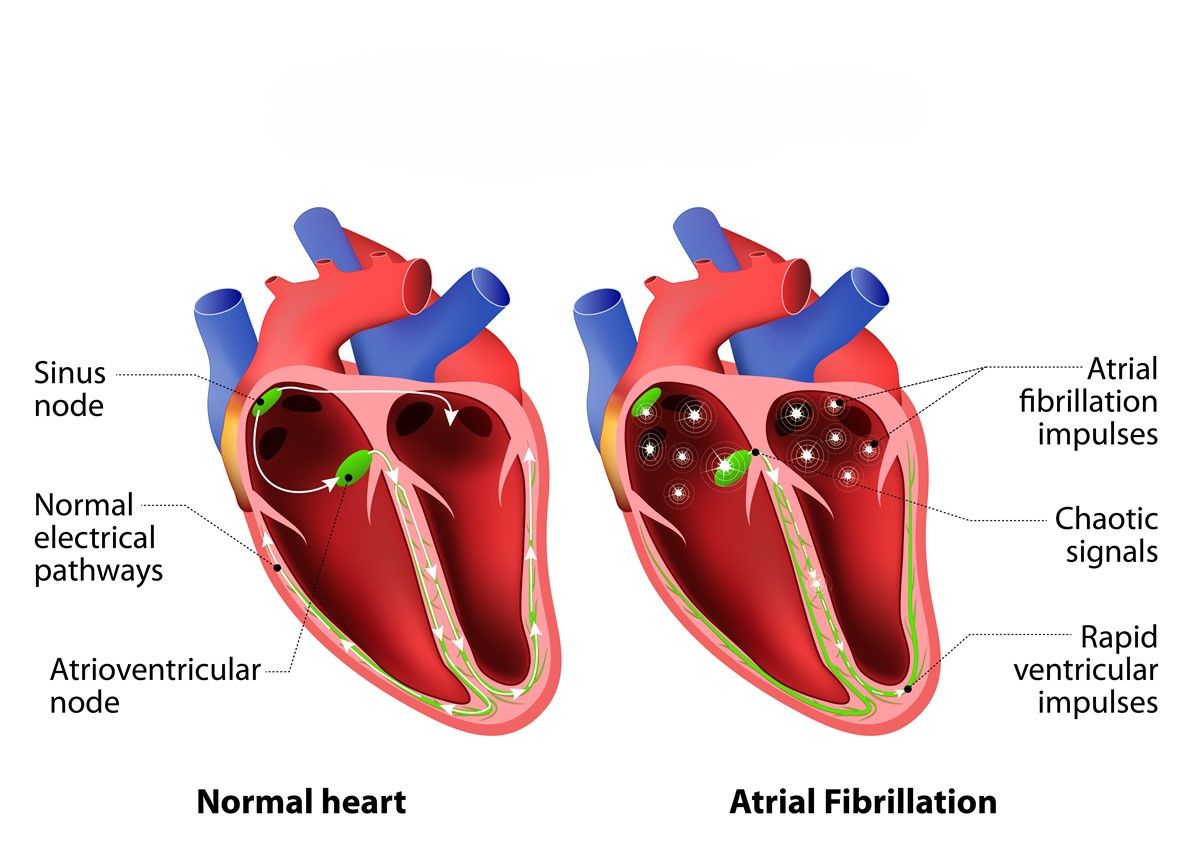What Causes It?
Coronary artery disease - Narrowed heart arteries can lead to a heart attack, which can damage heart tissue and cause arrhythmias.
High blood pressure - This can lead to the enlargement of your heart, which can change how electrical impulses travel through your heart.
Valve disorders - Leaking or narrowed heart valves can cause the heart to enlarge or weaken, leading to arrhythmias.
Congenital heart defects - Being born with certain heart abnormalities can affect the heart's rhythm.
Electrolyte imbalances - Low or high levels of key minerals (electrolytes) in your blood can affect your heart's electrical impulses.
Medications and supplements - Certain over-the-counter and prescription medications, as well as some herbal remedies and supplements, can trigger arrhythmias.
Excessive alcohol or caffeine consumption - These substances can affect the heart's normal electrical signals.
Drug abuse - Certain drugs, particularly stimulants such as cocaine, can cause arrhythmias.
Smoking - Nicotine can cause arrhythmias and make existing ones worse.
Stress and anxiety - These emotions can trigger certain types of arrhythmias.
Thyroid problems - Both an overactive and underactive thyroid gland can cause arrhythmias.
Signs & Symptoms
Palpitations - A feeling of a racing, uncomfortable, irregular heartbeat or a flip-flopping in your chest.
Fatigue - Feeling more tired than usual.
Dizziness - Feeling lightheaded or faint.
Shortness of breath - Difficulty breathing during normal activities or even at rest.
Chest pain - Discomfort or pressure in the chest.
Fainting (syncope) - Loss of consciousness due to decreased blood flow to the brain.
Anxiety - Feeling nervous or worried about the sensations associated with arrhythmias.
Weakness - Generalized body weakness or decreased ability to exercise.
Sweating - Unusual sweating, particularly with exertion or at rest.
